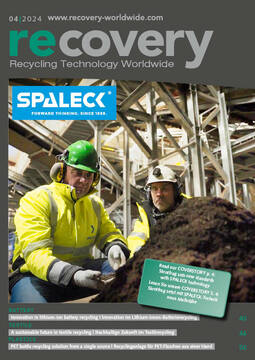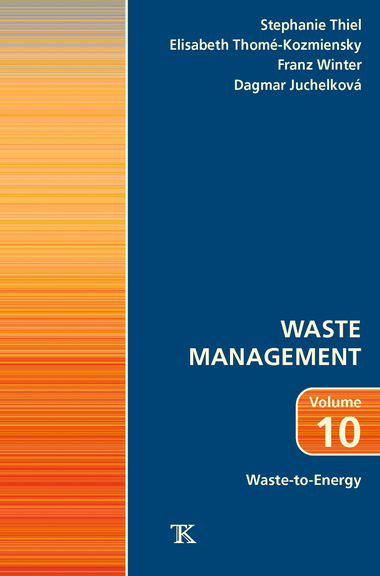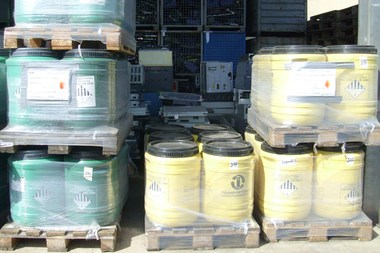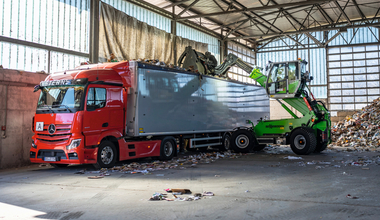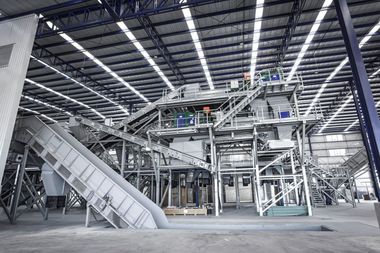Reference book for newcomers and lateral entrants to public administration and the waste management industry
By Dr. jur. Holger Thärichen, Erich Schmidt-Verlag GmbH & Co. KG, Berlin 2024; ISBN 978-3-503-23766-1, 356 pages, 10 pictures, 6 tables, 2nd completely revised and expanded edition.
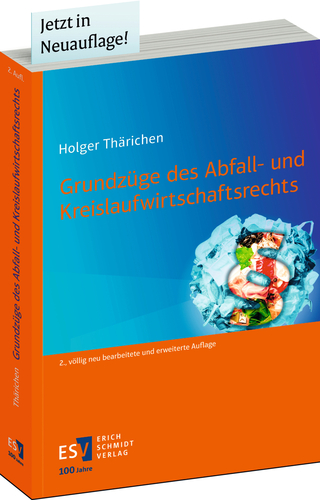 Now published in a new edition
Now published in a new edition
© ERICH SCHMIDT VERLAG GmbH & Co. KG
In times of energy and climate change and the associated many new legal regulations in energy and climate protection law, German waste and recycling management law is subject to rapid change and further development. Taking this fact into account, the author has thankfully decided to present an updated and supplementary version of this textbook just two years after the publication of the first edition. The title already gives the circular economy the importance it deserves.
The aim of the book is to make it easier for newcomers and lateral entrants to public administration and the waste management industry in particular to get to grips with this often quite complicated subject. To this end, the author has chosen a well-structured organization in 5 main chapters with an extensive subdivision that makes it much easier to find specific individual topics.
Beginning with a brief overview of the development of waste law with the emergence of organized waste disposal from the middle of the 19th century up to the Act on the Promotion of the Circular Economy of 2012 (Chapter 1), Topic 2 (What is waste) follows with the legal definition of the term waste and the associated topics such as the end of waste ownership and ownership of waste. Chapters 3 and 4 deal with the responsibility for waste (waste producers, waste owners, scope of disposal responsibility, civil and criminal responsibility for waste) and municipal disposal responsibility (waste hierarchy, obligations for separate collection for municipal disposal, exclusion from municipal disposal responsibility). Chapter 5 is finally devoted to the obligation to transfer waste (requirements, cooperation, control and sanctioning, exceptions).
An extensive body of literature with 265 individual references was used to write the textbook, including 28 publications by the author of the book himself. An index of abbreviations and a keyword index are, in addition to the already mentioned extensive disposition, important aids in making the required information easily accessible to the reader. The close practical relevance (many practical examples), taking into account current case law, as well as the formulation of important key points enable the reader to gain knowledge of specific relevant issues in a reasonable amount of time. However, they also illustrate the complexity of case law in the field of waste and recycling management, which often leads to rulings in which civil and criminal law, waste and environmental law and municipal statute law must be taken into account. Through concrete examples and their legal interpretation, including the presentation of the pros and cons of an approach, the author succeeds in conveying the complexity of the subject matter particularly well. The main focus is on questions and problems of municipal waste disposal, in part also commercial waste disposal. Legal issues relating to technical waste treatment plants are not covered in the book.
It would have been desirable for a modern textbook on the circular economy to avoid terms such as “garbage” instead of “waste” and “obligation to use” instead of “obligation to hand over”, both of which have a negative connotation. However, this does not detract from the overall appearance of the book and its recommendation as an informative aid for the daily work of the aforementioned clientele.
Overall, this handy, easy-to-read textbook and reference work can be recommended as an informative aid for the daily work of the aforementioned clientele.
Author:
Dr. Brigitte Hoffmann, Consulting Kreislaufwirtschaft/Umweltschutz, Oberschöna/Deutschland

